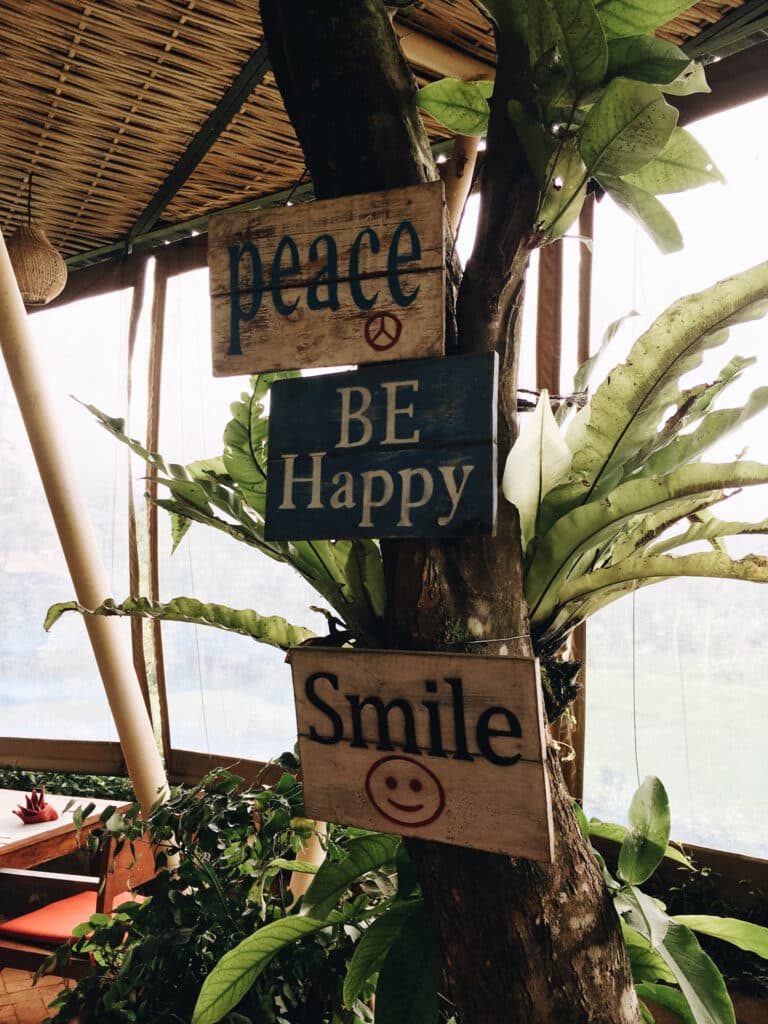Too often, we protect our egos instead of our peace of mind. We put up walls to protect ourselves from getting hurt, but in the process, we end up isolated and lonely. We need to learn how to protect our peace of mind so that we can live happier lives.
Here are 31 ways to do just that.

Protect Your Peace Meaning
Protect your peace or protecting your peace of mind means taking care of yourself mentally and emotionally. It means setting boundaries, avoiding toxic people and situations, and practicing self-care.
Why is it important to protect your peace of mind?
Your peace of mind is one of the most valuable things you have. It plays a key role in your overall mental health. It’s what allows you to live a happy, healthy life with inner peace.
31 Best Ways To Protect your peace of mind
1. Declutter your physical space
Clutter can be overwhelming and contribute to stress. Surround yourself with only the things that bring you joy or serve a purpose in your life.
2. Learn to say no
Don’t overload yourself with obligations that bring you stress and drain your energy.
3. Create healthy boundaries with people
Set boundaries. It’s important to protect yourself from toxic relationships and difficult individuals. Negative People can drain a lot of energy. Protecting your energy by saying no can become one of your healthy habits.
4. Practice stress management techniques
Techniques such as deep breathing, exercise, or mindfulness meditation can contribute to a more peaceful life. Yoga is a great way to manage stress.
5. Surround yourself with positive people who support and encourage you
The people around you have a big influence on your well-being. Prioritize relationships with those who lift you up and make you feel good about yourself. A healthy environment in your social life makes a huge difference.
Constant exposure to the virtual world can be overwhelming and contribute to feelings of anxiety or depression. Limiting screen time results in more time to focus on your own well-being.
7. Prioritize self-care
Whether it’s getting enough sleep, eating a balanced diet, or finding time for leisure activities, make sure to take care of yourself.
8. Declutter your schedule
Eliminate unnecessary commitments and make time for relaxation. You can plan “me time” in advance and put them in your schedule.
9. Practice gratitude and positive thinking
Focusing on the good things in your life can improve your overall well-being and protect your peace of mind. Even in hard times, there are positive aspects you can be grateful for.
10. Forgive yourself and others
Holding onto grudges and negative thoughts can weigh heavily on your mind. Let go of these things and allow yourself to move forward with a clear head and inner peace.
11. Seek help from a mental health professional if needed
Don’t be afraid to reach out for professional help, whether it’s therapy, coaching, or just talking to friends. Taking care of your mental health is just as important as physical health.
12. Find healthy ways to deal with stress and find inner peace
Avoid coping mechanisms that harm you, such as substance abuse, binge consuming content, etc. Instead, find healthy outlets for stress. Exercise and journaling are ideal ways to do this.

13. Take time to reflect and connect with your thoughts and emotions
Journaling, meditation, or just spending time alone can allow you to process your feelings and figure out what you need in order to protect your peace.
14. Spend time in nature and enjoy a peaceful life
Being in the presence of nature has been shown to improve mood and reduce stress. Take a walk in the park, go for a hike, or sit outside and listen to the sounds of birds chirping. These small moments can help restore a sense of calm and peace.
15. Practice self-compassion and self-love
Treat yourself with kindness and understanding, just as you would with others. With this, you establish a safe space internally to which you can come back anytime.
16. Set achievable goals and prioritize what’s important
Having a sense of purpose and working towards meaningful goals can protect your peace of mind. Make sure your goals are reasonable and prioritize what’s truly important to you.
17. Prioritize your own well-being and don’t overextend yourself for others
Take time for yourself and don’t neglect your own needs in favor of pleasing others.
18. Take responsibility for your actions and feelings
Instead of blaming others or external factors, take ownership of your emotions and choices. Practice listening to your emotions. Often there are important messengers for your underlying needs.
19. Find a healthy balance between work and leisure
Don’t let work consume your whole life completely. In the long run, this usually leads to a dead end. Prioritize your relationship and have a conscious conversation with your partner. Exercise and sports give you more power and are on-point advice.
20. Don’t dwell on past mistakes or regrets
Focus on what you can do in the present to move forward. Regurgitating past mistakes makes you feel miserable and is a waste of time. Becoming aware of what goes on in your mind is a very important step to protect your peace.
21. Let go of comparison and competition
Focus on your own journey and what truly matters to you instead of comparing yourself to others or competing with them. Search for autonomy and free yourself from the words of others.
22. Savor the small moments of joy in life
Enjoy the little things and appreciate them, instead of constantly striving for bigger achievements.
- a person that smiles at you,
- a ray of sunlight on your face,
- seeing a pretty flower
Can be small reminders to be joyful.

23. Nurture your relationships with loved ones and maintain open communication
Being vulnerable in front of your loved ones will create more closeness and usually leads to more support. Don’t be afraid to talk about your weaknesses. Creating a healthy and intimate relationship can be as importantly as sleep, food, and fresh air.
24. Don’t dwell on things that are out of your control
Focus on what you can change and improve. Let go of guilt and regret. Instead, be in the present moment and look at what actions you can take to positively impact your life.
25. Don’t try to please everyone
Focus on doing what’s best for yourself. It may mean disappointing others or saying no. Not everyone will understand it, but true friends will admire you for setting healthy boundaries.
26. Choose positivity and look for the good in every situation
I highly recommend the Chinese farmer’s parable. It literally teaches you equanimity and faith even in difficult circumstances.
27. Confront your fears and confront them head-on instead of avoiding them
If there are things that scare you or make you anxious, don’t avoid them. Face them head-on and learn to cope with them. This will take time and practice but will give you a deep feeling of fulfillment in the end.
28. Take time for relaxation and rejuvenation
Whether it’s through a vacation or a simple bath you are worth it! Don’t feel guilty or feel bad about recharging and rest time.
29. Don’t overthink situations
Trust your instincts and go with the flow. Overthinking can lead to unnecessary stress and anxiety in a person.
30. Recognize negative thoughts
Too often we lose ourselves in disempowering thoughts and negativity. Try to establish an inner observer that looks out for these toxic thoughts. Find ways to reframe them in a more positive light.
31. Trust in yourself and your abilities
Believe in yourself and know that you are capable of greatness. Speak with hope and positivity to yourself.
Implementing these tips and becoming aware of your thoughts can protect your peace of mind and lead to more happiness and fulfillment. Setting wise boundaries and protecting your energy will lead to more respect from every true friend. Remember, it’s a process and takes time to truly protect your peace. But it is worth the effort.
FAQs
Protect your peace at all cost meaning
The term “protecting your peace at all cost” emphasizes how important peace of mind really is for our well-being. Especially if you are a natural giver, you should consider the importance to prioritize yourself. You can’t imagine how many “givers” end up with burnout because they don’t do that.
Protect your peace book
There exists a book by baptist church pastor Dr. Sammie J. Dow called “Protect Your Peace: Tools For Managing Your Mind And Emotions“. It’s an interesting read if you are interested in going deeper into this topic.
Protect your peace song
There are a couple of different songs out there with the title “Protect Your Peace”. Here you find an overview of Spotify.
